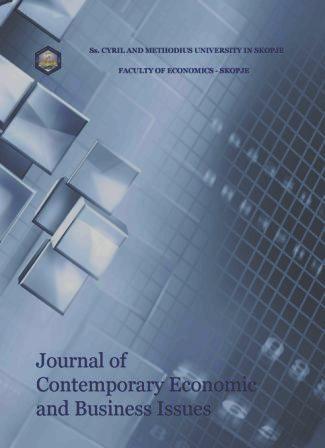THE EFFECT OF HOUSEHOLD AND CORPORATE LOANS ON CURRENT ACCOUNT BALANCE: EVIDENCE FROM THE WESTERN BALKAN COUNTRIES
Keywords:
Household loans, Corporate loans, Current account balance, Western Balkan countriesAbstract
The economic literature indicates that the loans relative to GDP in the economy, are important factors that influence the current account movements in a country. Therefore, the purpose of this study is estimating and then quantifying the effects that household and corporate loans have on the current account balance in the Western Balkan countries (Albania, Bosnia and Herzegovina, Montenegro, North Macedonia, Serbia and Turkey). The expectations are that different kind of borrowers might vary in terms of the use of loans and thus might have different effects on macroeconomic variables. The results are obtained by estimating a Vector Error Correction Model (VECM), and they imply that household loans have negative effect on the current account balance, while there is evidence that corporate loans have positive effect for some countries (Bosnia and Herzegovina and North Macedonia) and negative effect on the external balance for the rest of the countries. The findings in this paper coincide with the ex-ante expectations, given the import pressures that household loans might induce and the positive/negative impact that corporate loans might have on the overall productivity and competitiveness of the economy. This paper is relevant for the policymakers, because it estimates and quantifies the impact that household loans and corporate loans have on the current account balance.
References
Downloads
Published
Issue
Section
License
Authors retain copyright of the published papers and grant to the publisher the non-exclusive right to publish the article, to be cited as its original publisher in case of reuse, and to distribute it in all forms and media.
Authors are permitted to deposit publisher's version (PDF) of their work in any repository, personal and institutional websites, but full bibliographic information (authors, titles, volume, issue etc.) about the original publication must be provided.

